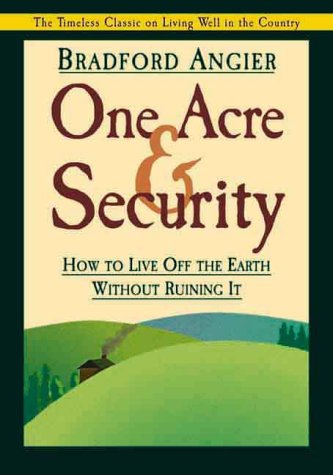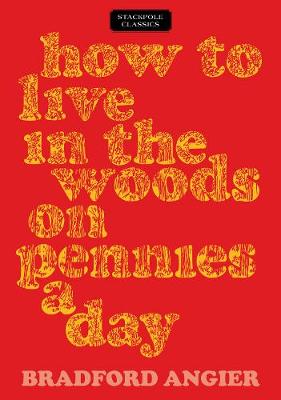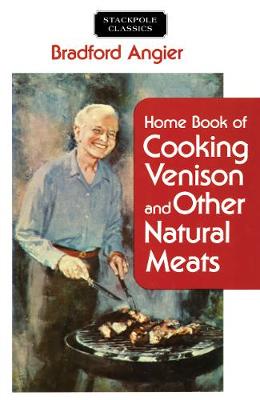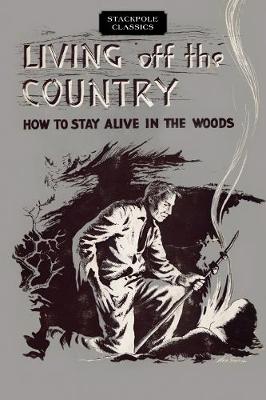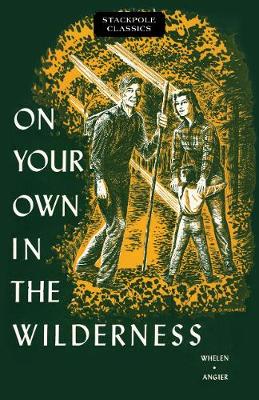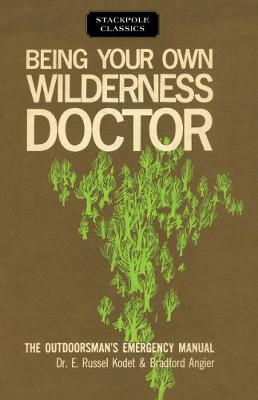Stackpole Classics
6 total works
A passport to freedom that shows how to find fun, food, shelter, and income on land that may be within easy-driving distance of the city and suburbs. Why work a lifetime, asks Angier, to accumulate enough money to retire from the rat race during the last, least active years of life, when a little ground can provide healthful, relaxed living--now--and income too? One Acre and Security explains how "three-squares-a-day" and money to spend can come from the earth with instructions on: sheep or pig farming, raising bees for honey, keeping dairy herbs of cows or goats, making money with herb culture, raising and selling rabbits and earthworms, running a poultry farm, raising fish, frogs, and turtles for profit and fun. Angier, the man who has done it all himself, shares too what he has learned about some of the ways to eat from nature's free banquet table, how to stretch country-living with hikes on famous trails or on any untrammeled path, where to find the best hunting and fishing, and how to catch bigger, healthier fish. "This book is written for those who want to move--not to the distant wilderness--but just far enough away from the smog and the screaming traffic to be where meat will be theirs for the raising, fish for the catching, fruit and vegetables for the picking, fuel for the cutting, home for the satisfaction of building...breathing cleaner air, beholden to none, doing what they want to do most and giving it their best," says Bradford Angier in One Acre and Security...
Bradford Angier did it, and now shows how anyone--even today--can find free or cheap land, build a home, find food, preserve it, keep warm, find employment, and even get a mail-order education out where the land is beautiful, game and fish abound, and man can reduce life to its essentials or live in great comfort on nature's credit card. Striking out for the northland is easy with this realistic look at the pros and cons of wilderness living and advice on where to write for specifics on transportation, local weather conditions, homesteading, and career opportunities. For a week or for years, food--and electric bills--are never a problem with instructions on building underground, running-stream, or river bank refrigerators. The food cache stays full with details on: -Building a smoke house -Making jerky, covered-wagon style -Curing meat with salt and spices -Curing bear hams and bacon -Making wild game sausage -Using bayberries for seasoning, candles, soap Building a log cabin is simple enough when a skilled woodsman explains how to: -Peel, season, and preserve logs -Lay out the floor plan -Prepare the foundation -Use pioneer ways of leveling, squaring -Lift logs easily -Make doors, windows, floor, roof -Do the caulking and chinking -Make basic furniture
Once again "Mr. Outdoors" guides the way to really succulent eating after a successful hunt. Home Book of Cooking Venison and Other Natural Meats provides not only recipes for enjoyment straight from nature's banquet table, but also gives tips on their preparation in ways that eliminate waste as well as advice on the best methods of storage for those morsels you save for future feasting. The flavor of the outdoors on every page is as pungent as the sweet, wafting smoke of a cookfire. Sitting down to your table at home with the product of the corner butcher shop brings a full tummy; sitting down to nature's table with natural meat that you've stalked and prepared yourself brings a freedom comparable only to that of the woodlands itself. Along with that full tummy.
Living off the Country changes the risk of moving around in the outdoors into trouble-free times...offering take-along tips for finding free appetite fillers, thirst quenchers, weapons and warmth in all kinds of situations. In a clear and understandable way, brad Angier provides a harvest of handy, helpful hints about the necessities of life...where to look for the natural-growing supply of edible, unusual, taste-tickling plants, bushes, and fruit; make-shift but sure-fire ways to catch fish; easy ways to utensil-less cooking; building and using first to the best advantages; constructing off-beat shelters handily; best ways to conserve and use available clothing; what to do about finding your way; backwoods medicine for emergencies...and much more to satisfy man's need to stay alive in the woods. For any kind of timber trek, pack Living Off the Country with other survival gear. Nature Magazine advises "if you're planning any wilderness adventure, you would do well to get acquainted with the valuable information in this book."
On Your Own in the Wilderness
by Bradford Angier and Col Townsend Whelen
Published 15 September 2017
What Thoreau proved a century ago about returning to nature will still work today. There is an inexpressible thrill in the intimate study of primitive country, the workshop of nature, the appreciation of wilderness technique. Unspoiled regions possess a quiet beauty and peace--no artificiality, no crowds, all woods uncut. There is unbounded satisfaction and pleasure in successfully meeting the challenge of the wilderness. The two requirements for man in the North Country are knowledge and equipment. Colonel Townsend Whelen and Bradford Angier have combined their vast experiences camping and bivouacking to produce the perfect guide to peace and utter freedom. If the wilderness calls you, they invite you to join them and talk together about how to live in it. They explain what from their experience they found to be the best ways of entering wild and unspoiled country, of finding their way through it, and living there in comfort and safety. On Your Own in the Wilderness is their explicit direction on how to escape to an earthly Paradise.
BRADFORD A
Being your own wilderness doctor for the security of knowing what to do for the best--in case of the worst--a more than first-aid companion that's always there when a doctor may be too far away. Angier who knows the outdoors, and Dr. Kodet who knows people--inside and out--team up to present life-saving, panic-preventing information for times when making the right decision is most vital. Here are trip-saving ways to handle the sometimes painful but rarely serious accident-health problems that can face campers, hikers, and vacationers...cuts, sprains, insect bites, blisters burns. Here's what to do when a misstep results in fracture, break, dislocation, swelling. Know how a doctor would view symptoms that loom larger as the metropolis recedes; how he's handle the problem; how to differentiate between minor protests of hard used muscles and signs of serious trouble that call for prompt professional help.
